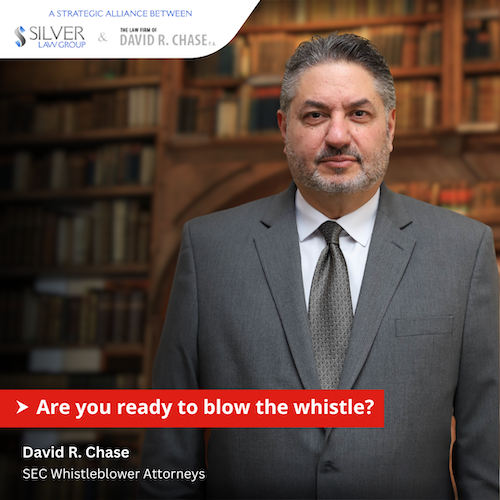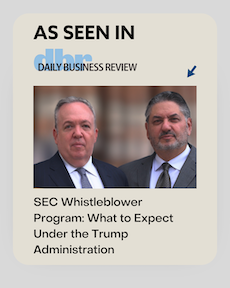How to Secure the Maximum SEC Whistleblower Award
Blowing the whistle on financial crimes isn’t easy. When you have inside information about wrongdoing, it’s usually because you’re an insider. And if you are, it’s likely that you’re going to upset someone by taking that information to the authorities. By stepping forward, whistleblowers can risk their jobs or even their careers.
Many people have done this out of principle. But in the 2010 Dodd-Frank financial law, the federal government created another incentive: money. The SEC whistleblower program offers whistleblowers who bring them useful information a percentage of any award that results. But whether you get that money—and how much you get—isn’t for sure. To maximize the reward for the risk you’re taking, it pays to understand the system.
Learn the SystemTo participate in the SEC whistleblower program, you must voluntarily bring the SEC information about an ongoing violation of the law that leads to a successful enforcement action worth more than $1 million. If you meet all these requirements, you can collect 10% to 30% of the final award.
But whether you receive an award, and how much you can receive, still depend on a host of other factors. Since the award is calculated as a percentage of what the SEC recovers as a civil or criminal fine, one important factor is the size of that fine. That’s not under your control—but many other factors that determine your award are. That means you can maximize your chances of a large award if you understand how the awards are determined.
Factors that the SEC takes into account when deciding the amount of an award include:
- Importance: You can receive a higher award if the information was vital to the SEC’s success with the enforcement action.
- Cooperation: It’s helpful if you’re cooperative and available to help the SEC during its investigation and enforcement action.
- Promptness: Unnecessary delays in bringing the information to the SEC can hurt your case for compensation.
- Internal compliance: It counts in your favor if you reported the information internally before or at the same time that you brought it to the SEC. It counts against you if you obstructed any internal investigation.
- Wrongdoing: The SEC will reduce an award if you participated in the wrongdoing the agency is trying to punish.
In late 2020, the SEC announced more rules that provided more guidance about maximizing a whistleblower award. One applies to awards of $5 million or less, which is three-quarters of all SEC whistleblower awards. In those cases, the SEC presumes that it will pay the statutory maximum amount—that is, 30% of the total financial penalty—unless there are negative factors like wrongdoing by the whistleblower. Larger awards don’t have this presumption, but the SEC says that they have historically been in the top third of the award range.
The new rules also let whistleblowers collect awards even if the enforcement action is deferred or the SEC agrees to a non-prosecution action. The award would be calculated as a percentage of the money collected as a result of those actions.
Finally, the new rules say that the SEC will submit information to Congress every year about how the different factors that determine the amounts of awards, and how they affected the whistleblower awards for that year. That data will guide future whistleblowers who want to maximize their awards.
Experienced SEC Whistleblower AttorneysIf you’re considering coming forward with information about a serious securities law violation, you should talk to an experienced securities law attorney. Legal representation can keep your identity anonymous before the SEC, position your information to appeal to the agency, and ensure that you aren’t implicated in the wrongdoing.
At the Silver Law Group and the Law Firm of David R. Chase, PA, we are career securities law attorneys who focus our practice on protecting investors and employees. Attorney David Chase is a former SEC enforcement attorney who understands what the agency is looking for. Attorney Scott Silver wrote a well-regarded outline of the SEC whistleblower program, which he provides for free on request. If you’d like to talk confidentially with us about your situation and your options, we can help. Call us at 800.975.4345 or contact us online today.

 Silver Law Group Home
Silver Law Group Home

